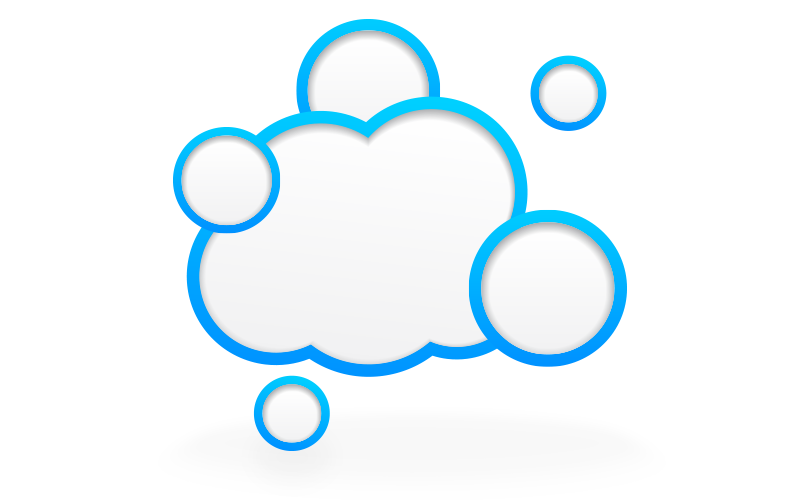What is B2B?
Business-to-business (B2B) represents a category of companies that work solely with other businesses. These relationships could be between a manufacturer and a wholesaler, a wholesaler and a retailer, or a manufacturer and a retailer.
Business-to-business transactions and partnerships are most common in the following industries:
- Automotive
- Services
- Manufacturing
- Software
Many B2B businesses manage their customers, sales cycles, and upsells through customer relationship management (CRM) software. CRM software allows B2B companies to track their customers and their related history in a single location.
Types and models of B2B businesses
B2B organizations operate within one of three models: service-based, product-based, and software-based.
- Service-based B2B companies provide other businesses with whatever service they need. Some examples are employee training and marketing agencies or consultancies.
- Product-based B2B companies offer other businesses a physical product of some kind, such as suppliers for machine parts or equipment.
- Software-based B2B organizations sell software to other businesses to assist with operations. This includes accounting software, cloud services, and sales management tools.
The most common types of B2B businesses are:
- Payroll providers
- Software as a service (SaaS)
- Property managers
- Medical equipment manufacturers
- Industrial cleanup
- Marketing firms and agencies
- Food manufacturing
- Point-of-sale (POS)
- Consultancies
- Business insurance providers
Benefits of B2B
B2Bs are common choices for new entrepreneurs because the barrier to entry is lower than other types of businesses. Benefits for those who become successful and find their place in the B2B market include:
- Market stability. While e-commerce products are reliant on an ever-changing supply and demand, there will always be a need for businesses to purchase tools for their different teams to function properly.
- Higher ROI and single-sale value. Wholesale and business-wide purchases bring in much more money within a single sale.
- More long-term relationships. B2B purchases often involve a contract of at least a year. There’s more opportunity for businesses to form long-term, positive customer relationships.
- Higher conversion rates than with individual consumers. This may also result in higher ROI for marketing efforts.
Drawbacks of B2B
As with any business relationship, B2B companies and processes have drawbacks and disadvantages, including:
- A slower sales cycle. Businesses working with each other often require multiple steps in the sales process and more team involvement, including legal and finance teams.
- A difficult decision-making process. Because the transaction will affect multiple teams and employees, making a decision requires buy-in from multiple people, not just the point of contact.
- A constant demand to grow and scale. B2Bs need to continuously innovate and differentiate themselves in order to survive.
- Difficulty diversifying offerings. Building and selling a new product or software is a much longer, more expensive process with B2B companies.
- Customer demand for continued support and nurturing. This can be a lot for businesses to handle, especially if they don’t have a dedicated customer support team.
- A smaller, more discerning target market. The number of businesses in the world doesn’t come close to the number of individual consumers.
Best practices for a B2B business
No matter the industry or the offering, B2B businesses need to take certain steps to be successful. When building processes and plans for the B2B market, keep these best practices in mind:
- Explore the different marketing channels available and pick the ones that make the most sense for the business. Just because a marketing channel exists doesn’t mean time should be spent there.
- Research the organization’s competitors. Learn from their websites, product offerings, and marketing presence.
- Before marketing efforts begin, define the company’s brand positioning and value propositions. It’s important to figure out why the business stands out before promoting it.
- Define market and buyer personas. Understand how those personas work and make purchasing decisions, including what hurdles they face.
- Don’t forget to be human. Just because the target customer is a business doesn’t mean the human touch should be removed.
- Create SMART goals to measure success. The SMART framework encourages setting goals that are specific, measurable, attainable, relevant, and time-based.
B2B vs. B2C vs. DTC
B2B consists of a transaction or purchase between two business entities.
Business-to-consumer, also known as B2C, describes a relationship and purchase between a consumer and the business they purchase from. B2C companies may make their own products, in addition to selling products from other brands. Amazon, Target, and Expedia are B2Cs.
Direct-to-consumer (D2C) represents transactions in which businesses fulfill orders and send them directly to the end customer. DTC businesses make and sell their own products. Many e-commerce small businesses fall into this category.
Take a look at the popular marketing automation tools that B2B businesses use alongside their CRM to grow revenue and scale.

Whitney Rudeseal Peet
Whitney Rudeseal Peet is a former freelance writer for G2 and a story- and customer-centered writer, marketer, and strategist. She fully leans into the gig-based world, also working as a voice over artist and book editor. Before going freelance full-time, Whitney worked in content and email marketing for Calendly, Salesforce, and Litmus, among others. When she's not at her desk, you can find her reading a good book, listening to Elton John and Linkin Park, enjoying some craft beer, or planning her next trip to London.

